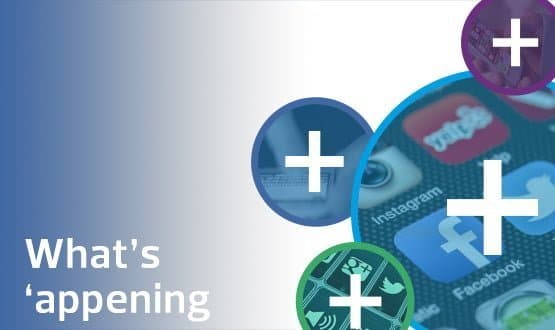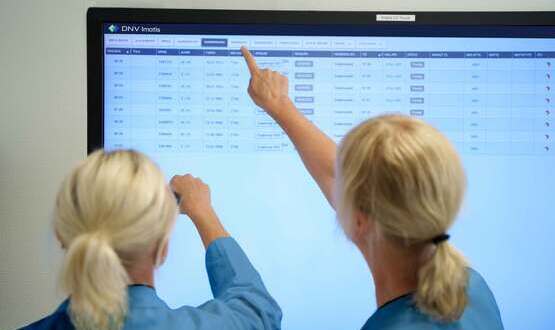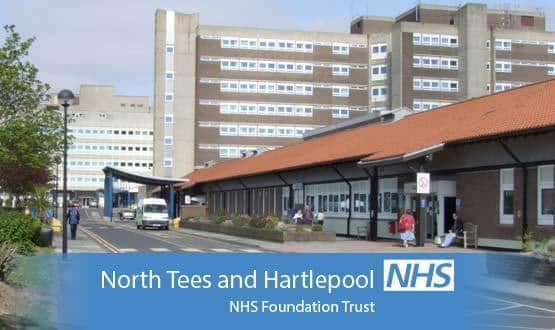Mobile and app news in brief

Apple announces CareKit
Apple has announced a tool called CareKit to allow developers and healthcare professionals to create new types of apps that can help people understand what affects their health. Apple has already created HealthKit for developers building apps that run on the iOS platform and ResearchKit for researchers and scientists, but CareKit focuses on patients and their families. The first CareKit app is for Parkinson’s and presents symptom-levels information from before and after medication starts to help health professionals track whether a treatment is working for their patient. Another app will focus on post-surgery. CareKit launches in April.
Global health project calls on Parkinson’s sufferers to track health using smartphones
A global project is calling on 100,000 people to track their health, using smartphone technology, to help understand the impact of Parkinson’s and provide valuable new research. 100 for Parkinson’s is a global science project, led by UK digital health startup uMotif, and supported by organisations such as The Cure Parkinson’s Trust, Parkinson’s UK, Nesta, and the Cabinet Office. People with Parkinson’s, their friends, family and the general public can use the uMotif app on their smartphone or tablet to monitor their health for 100 days and donate their data for research. Chief executive of uMotif Bruce Hellman said Parkinson’s patients often only visit a doctor twice a year, so knowing more about their health will help them to bridge the gap between health visits and better understand their symptoms.
London university opens a smart home
City University London has opened a smart home facility. The City Technology Enabled Care Studio is equipped with the latest telehealth and telecare facilities, including chair and bed occupancy sensors, medication dispensers, movement sensors and also blood pressure monitors and glucometers. Supported by Tunstall and Philips, the space is designed for students and health and social care professionals to learn how to use the latest remote care products and services and integrate them into their pathways of care. The university already has a Clinical Skills Suite, which includes a fully simulated nursing ward and a virtual 3D environment for radiotherapy training.
Survey shows patients embracing digital technologies
Two-thirds of British people have used technology to access primary healthcare, according to a study of more than 1,000 British adults carried out by on-demand video GP consultation service, PushDoctor.co.uk. The report reveals that ordering repeat prescriptions is the most popular way of using technology to access healthcare services. More than 1 in 5 of people surveyed said they have communicated with a GP online – e.g. via live chat, whilst 17% have used video consultation services to speak to a GP. Around a third said they would consult a GP via video if it meant they could have an appointment when and where they wanted.
Oxford doctors help develop smartphone game for African healthcare workers
A smartphone game developed by doctors in Oxford and Kenya has been developed to provide vital emergency care training to African healthcare workers. The project uses low-cost smartphones and scenario-based mobile gaming platform, Life-saving Instruction for Emergencies, to teach healthcare workers to identify and manage medical emergencies. The game-like training techniques reinforce the key steps to save the life of a newborn baby in distress. The developers have launched a crowdfunding campaign to raise £100,000 to develop the game for use in the field. The funds will be used to develop an interactive 3D simulation of an emergency scenario based in a hospital delivered through a smartphone.
UpToDate can use voice commands
Clinicians can now use “OK Google” to search clinical decision support app UpToDate. Users can, from any screen, say “OK Google, search UpToDate for..” Something like myocardial infarction, its developers say. That will open up the app and run the search automatically. The functionality is currently only in English. More than 100 NHS hospitals subscribe to the app, which provides evidence-based opinions and treatment recommendations on over 10,500 conditions across 23 specialities. It’s developers say users have long been looking for dictation-related capabilities.




